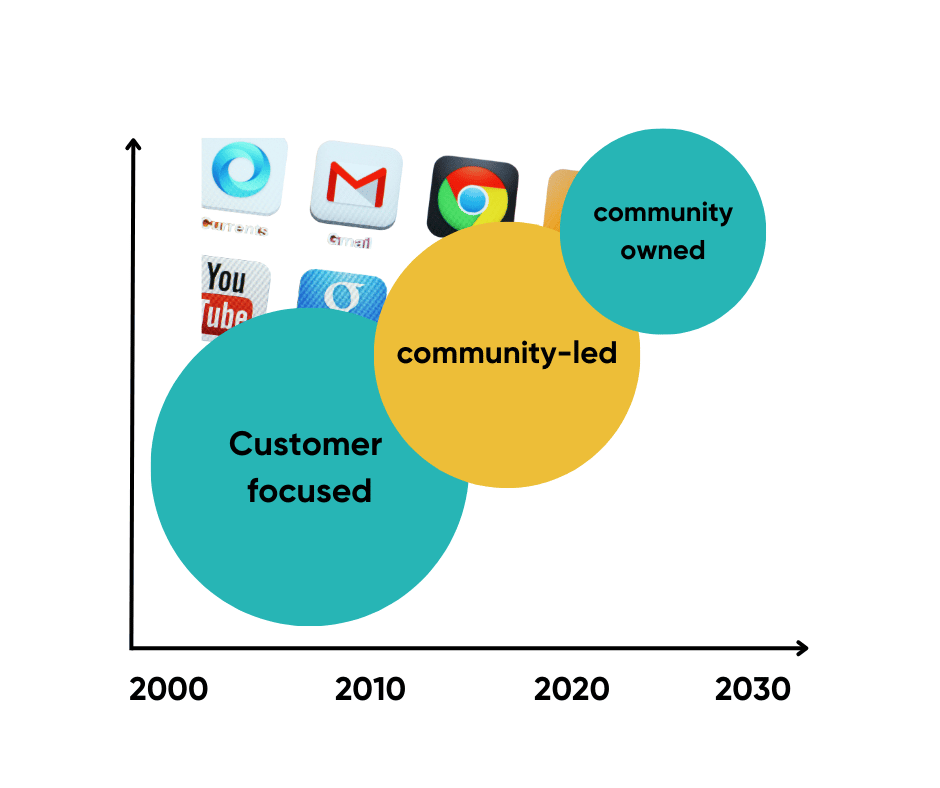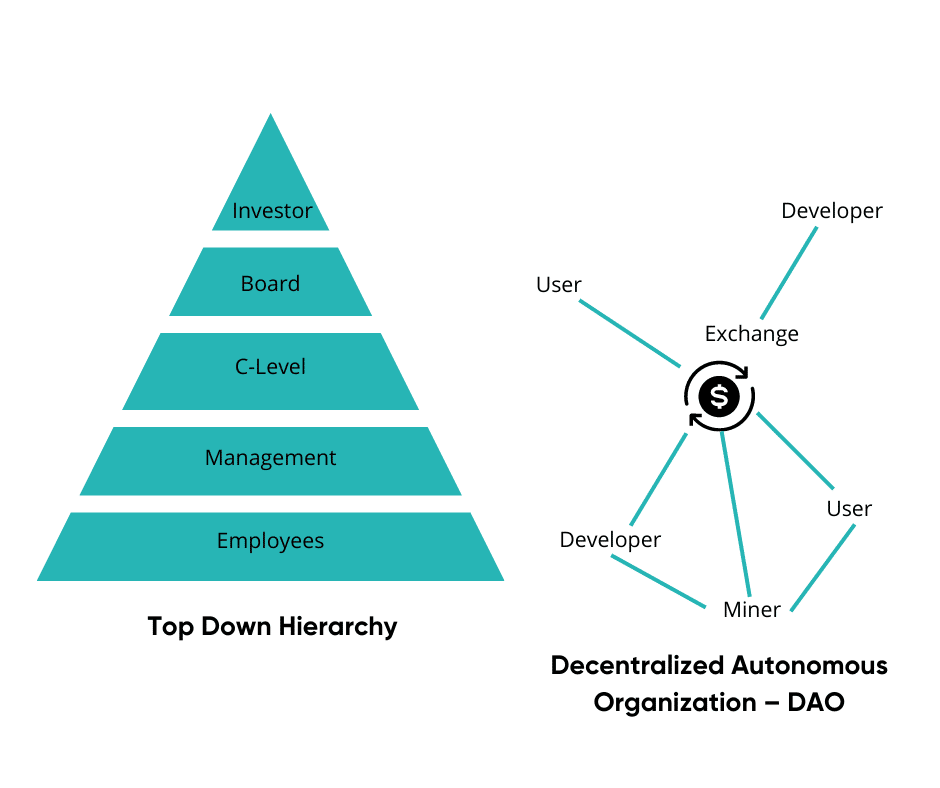The topic of community-led companies and the future of decentralized autonomous organizations is an exciting one. With a booming crypto market and weekly new NFT projects by famous artists, it seems like everyone’s talking about it. But could DAOs be the answer?
It might seem like a strange question, given that many of the problems that plague community-led companies are usually solved by building a cohesive and supportive community-something DAOs can also do. So the question remains:
Could DAOs help the community industry?
Organizations have become increasingly customer-focused in the past few hundred years. This was made possible by the introduction of the internet in the 1990s. In the 2000s and 2010s, startups disrupted industries with a customer-first perspective. Community-led companies, such as Twilio, Elastic, and Notion, have become popular as they allow users to shape their own products. And in recent months and years, the next big step in the evolution of cryptocurrency has become increasingly evident. It’s called the “decentralized autonomous organization” (DAO).
These decentralized autonomous organizations start a new evolutionary step in the progress of community involvement in business. Terms to indicate different steps of growth and involvement are:
- Community focused
- Community-led
- Community Owned

What is a DAO?
The DAO, a Decentralized Autonomous Organization, Explained
The world of decentralized autonomous organizations, or DAOs, is a new way of thinking about how organizations can be run. A DAO is a collective entity that is owned by its members and governed by a smart contract. It is an open-source software project that is powered by the Ethereum blockchain, and it provides an alternative way for people to create and manage organizations.
DAOs have the potential to revolutionize the way organizations are run.
By utilizing smart contracts, organizations can be built and run more efficiently. This can include the ability to manage and delegate tasks, as well as track contributions and payments. Additionally, DAOs can be used to provide funding for organizations, as well as act as a platform for collective decision-making.
The DAO hack is a cautionary tale of how even the most secure technology can be vulnerable to malicious actors. It serves as an example of why it is important to remain vigilant and aware of potential security risks.
Simply put, DAOs are the companies and communities of Web3. They are similar to traditional companies, but instead of having hierarchical decision-making, they have members who can collectively make decisions through voting and get rewarded with a pro-rata share of the company’s profits. Here you can check out some of the best projects in the sphere.

Increasing Capacity with web3 communities
The Engagement Problem of communities
To build an initial audience, all you need is a simple platform. It’s not too difficult to get people to sign up, but it can be challenging to turn that audience into an engaged community. The two major issues usually arise when it comes to community engagement: lack of incentives and lack of participation.
Compensation:
Community managers try to involve their members in any way they can, from being content creators to providing feedback, organizing meetups, and more. (read here 3 powerful rules).
In return, they get swag, exclusive access, or some kind of recognition. However, financial compensation is usually not provided. There even is the opinion that it can be destructive to community engagement. Nevertheless, when a company makes a lot of money off the work of its community, it can feel unfair that the most active members get compensated with a basic income while the company is making record-breaking returns with no effort from its users.
Participation:
Businesses must have active involvement of their community in their decisions, otherwise, they may get demotivated and feel disconnected. For example, companies should hold regular polls and open office hours for their community members, as well as provide an open road map for their products. This would make the community members feel more involved and have a better understanding of the decisions made by the company. Ultimately, it’s the responsibility of the business to ensure that its community is active and involved in its decisions.

The problem of ‘measuring impact and business value
Community teams especially in corporate software companies still lack a reliable way to measure their return on the community. This is large because their data comes from multiple platforms, such as GitHub, Discord, and Stack Overflow. Additionally, community managers can’t easily link their company’s other revenue streams to the community they manage. To make matters worse, it’s hard to find the right metrics to measure the success of their community. It’s also tough to see which metrics are the most important to their company.
Understanding the total impact of community initiatives is difficult, as it can be hard to prove the value of the community to stakeholders.
Companies often underestimate how much they should be spending on their campaigns, resulting in them not investing enough. Additionally, there is a risk associated with this-no one has ever been fired for funding a community initiative.
Our community consultants recommend companies like Crowd.dev or Threado to get some help in this jungle since not every company can be developed or rebuilt including DAO.
Applying the concept of DAOs to today’s communities
DAO communities could help address some of the issues faced by open-source software projects.
DAOs could create communities where all members have equal voting rights, based on their contributions. This would allow members to have a direct influence on the direction of the community.
Additionally, DAOs could enable communities to share their economic returns with their members, allowing projects to become a viable source of income. The potential impact this could have on open-source software is hard to fathom, and this could only improve the experiences of contributors. Storing data securely and reliably is a major issue in the industry, and a distributed autonomous organization (DAO) could be the answer.
With a DAO, every member would be given a wallet address that could be used for all transactions. This would eliminate the need for different names, handles, and other identifiers, as well as improve the overall security of the data.
In the 90s, people would have been skeptical about the idea of community-led companies. But today, this is becoming more and more common. Even outside of the web3/crypto bubble, there are now examples of this, like the FairVote organization that allows for online voting on political issues.
Decentralized organizations have been around for a long time, but it seems that in the future, community ownership of products and services will be expected. If you need help building them, reach out to our consultants.
